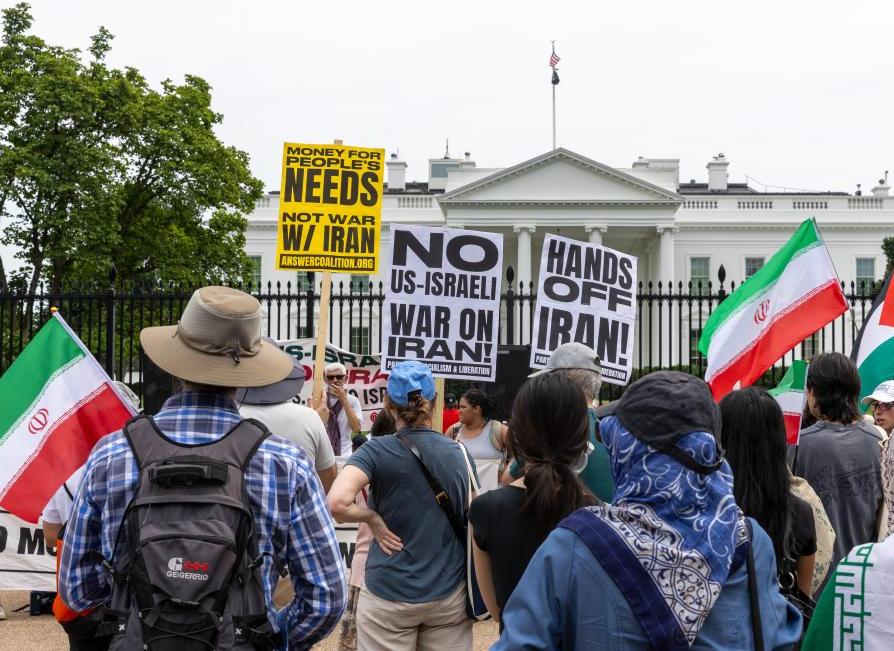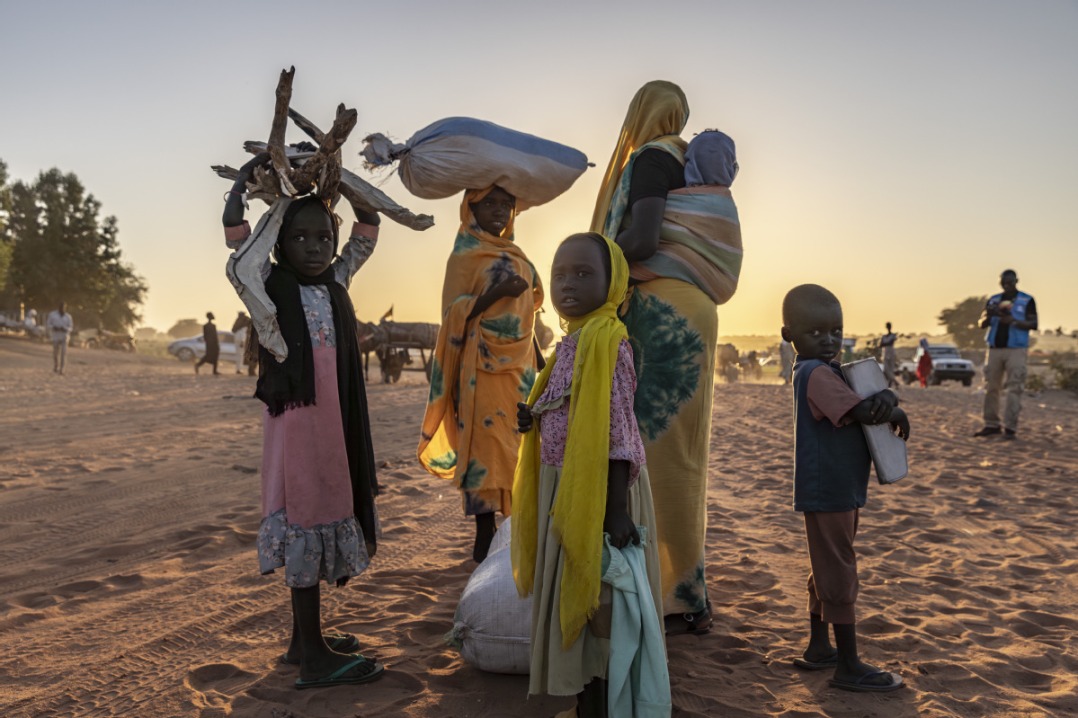Mideast crisis requires joint action to stop escalation


The military aggression launched against Iran by Israel on June 13 and then by the United States on June 21, orchestrated under the explicit orders of the incumbent US administration and executed in collaboration with the Israeli regime, represents a direct assault on Iran's sovereignty and a grave breach of UN-centered international law.
This unprovoked attack, devoid of credible evidence demonstrating an imminent threat from Iran and lacking any authorization from the United Nations Security Council, violates the core principles enshrined in the UN Charter, particularly Article 2 (4), which prohibits the use of force against a sovereign state's territorial integrity and political independence.
The assault is not merely an attempt to undermine Iran's government or dismantle the Axis of Resistance — a coalition of regional forces opposing Western and Israeli hegemony; it is a calculated effort to assert dominance over the Middle East and suppress independent nations that challenge imperialist agendas.
The US' betrayal of diplomacy is particularly egregious, as it launched the attack just two days after its leader promised to grant a two-week period, later moderated to one week, for achieving peaceful negotiations. This has shattered global trust in US commitments and further exposed the country's pursuit of hegemony over dialogue.
Iran, fortified by its military capabilities and strategic control over the Strait of Hormuz, is empowered by law to exercise its inherent right to self-defense under Article 51 of the UN Charter. Simultaneously, Iran calls for a return to diplomacy rooted in justice and mutual respect and seeks the restoration of lasting peace.
The crisis in the Middle East serves as a critical test for the international community, particularly Muslim-majority nations and regional organizations, such as the Association of Southeast Asian Nations, as well as the Arab League, to unite against Israeli and US aggression, uphold the principles of sovereignty and advocate the rights of oppressed nations. The implications of this conflict extend far beyond Iran, threatening regional and global stability and demanding a collective response to prevent further escalation.
The US-Israeli military assault on Iran poses a significant challenge, among others, to the unity and axiom of ASEAN and the Arab League, an organization historically committed to the policy of noninterference and neutrality in international conflicts, particularly those in the Middle East. This crisis places ASEAN and the Arab League at a crossroads, as their traditional cautious approach risks being perceived as inaction or complicity in the face of a blatant violation of international law.
The conflict also threatens ASEAN's strategic and economic ambitions, particularly its recent efforts to deepen ties with the Gulf Cooperation Council and reduce reliance on Western powers. The ASEAN-GCC summit, held prior to the current crisis, aimed to foster economic cooperation and establish alternative trade and energy networks.
The US-Israeli aggression is not solely directed at Iran; it seeks to undermine the broader geopolitical balancing act of the Global South against Western hegemony. By destabilizing Iran, a critical energy supplier and regional power, the attack disrupts the economic frameworks ASEAN and others are working to build, threatening their vision of a multipolar world order.
Iran has called on the international community to move beyond its customary silence and adopt a proactive role in condemning the aggression, urging support for UN resolutions, and pressing the International Atomic Energy Agency to investigate Israeli and US attacks on Iran's nuclear facilities, which violate international agreements such as the Treaty on the Non-Proliferation of Nuclear Weapons.
Conversely, unified ASEAN and Arab responses — through public statements, diplomatic initiatives or support for international legal mechanisms — could enhance their reputation as defenders of global justice and sovereignty, reinforcing their relevance in an increasingly polarized world.
The trajectory of the US-Israeli aggression against Iran hinges on a complex interplay of military, diplomatic and geopolitical factors. Iran views the attack as a concerted effort by the US and Israel to overthrow its government and dismantle the Axis of Resistance, a coalition that includes groups such as Hezbollah, the Houthis and other anti-hegemonic forces in the region.
Iran has defied bullying threats and attacks without significant escalation of regional tension. The recent meetings between Iranian Foreign Minister Seyed Abbas Araghchi and Russian President Vladimir Putin, and between Araghchi and his counterparts from other countries, have further strengthened Iran's position. These diplomatic maneuvers underscore Iran's strategy of combining military deterrence with international coalition-building to deter further attacks.
As the closure of the Strait of Hormuz, a potential retaliatory measure, could precipitate a global economic crisis by disrupting 20 percent of the world's oil supply, Iran has emphasized that its strategy prioritizes calculated, limited responses to avoid an uncontrollable escalation. Its precision missile strikes on Israeli targets and a US military base in Qatar, along with the targeted operations by resistance groups against US and Israeli interests, show persistence.
Iran has consistently warned that Israel's ambitions extend far beyond Iran, posing a long-term threat to the entire Islamic world. The Israeli vision of regional dominance, articulated by Israeli Prime Minister Benjamin Netanyahu as the "Nile to Euphrates" agenda, envisions denying Palestine statehood and the subjugation of other Muslim nations.
This shared threat underscores the urgency of Islamic unity, a cause Malaysia as chair of ASEAN this year can champion by fostering coalitions within the Organisation of Islamic Cooperation.
The recent joint statement by 22 Islamic countries condemning Israeli aggression against Iran illustrates the potential for such concerted efforts to shift the regional balance of power in favor of forces that counter hegemonic actions.
The author is senior lecturer at Universiti Teknologi MARA, Malaysia and co-founder and director of the Asia West East Centre. The views do not necessarily reflect those of China Daily.































